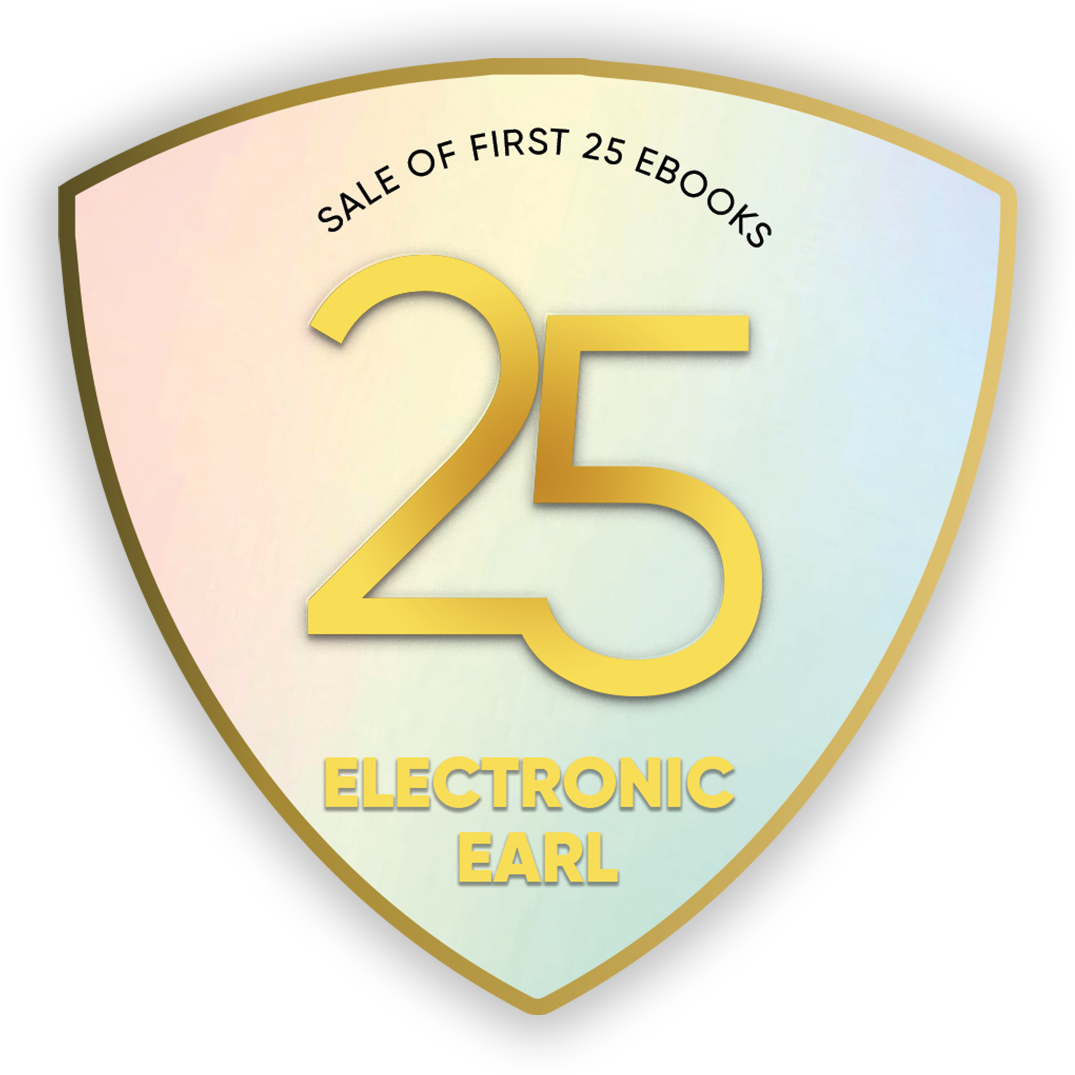
- Discover books
- For Writers
-
For Writers
-
Indie Author Championship
-
Challenges
Writing Contests
- Get Started

"It was a wonderful experience interacting with you and appreciate the way you have planned and executed the whole publication process within the agreed timelines.”
Subrat SaurabhAuthor of Kuch Woh Pal -
Arif ansari
Wireless Communications Engineer and Urdu-to-English TranslatorArif Ansari was born in Lucknow and grew up in Aligarh, where he attended Our Lady of Fatima Secondary School. He was educated in electrical engineering at AMU, Aligarh, India and SIU, Carbondale, IL. A wireless communication engineer by training and profession, he lives in Bethesda, Maryland, USA. He translates Urdu fiction and non-fiction books into English.Read More...
Arif Ansari was born in Lucknow and grew up in Aligarh, where he attended Our Lady of Fatima Secondary School. He was educated in electrical engineering at AMU, Aligarh, India and SIU, Carbondale, IL. A wireless communication engineer by training and profession, he lives in Bethesda, Maryland, USA. He translates Urdu fiction and non-fiction books into English.
Read Less...Crop your profile image

Five Nights of Lucknow
Books by Arif Ansari
This book is a translation of the Urdu book "Lucknow ki Panch Ratein." It is a collection of essays on various topics by the famous Urdu poet and writer Ali Sardar Jafri.
This book is a translation of the Urdu book "Lucknow ki Panch Ratein." It is a collection of essays on various topics by the famous Urdu poet and writer Ali Sardar Jafri.
Akhtari Begum
Books by Arif Ansari
Near Sarai Maali Khan, on the backside of Mian Ilmas Ka Imambara, we come to a gate leading into a large, well-built, three-storeyed house. The door is stately but quite ancient, its brass tacks having no trace of shine left.
The walls of the compound are broken in various places and in a state of disrepair. The plaster had worn off a long time ago. Now, the lakhori bricks—the thin red-colored bricks made of burnt clay, laid end-to-end—have a white
Near Sarai Maali Khan, on the backside of Mian Ilmas Ka Imambara, we come to a gate leading into a large, well-built, three-storeyed house. The door is stately but quite ancient, its brass tacks having no trace of shine left.
The walls of the compound are broken in various places and in a state of disrepair. The plaster had worn off a long time ago. Now, the lakhori bricks—the thin red-colored bricks made of burnt clay, laid end-to-end—have a white powdery deposit on them in many places.
Akhtari Begum
Books by Arif Ansari
Near Sarai Maali Khan, on the backside of Mian Ilmas Ka Imambara, we come to a gate leading into a large, well-built, three-storeyed house. The door is stately but quite ancient, its brass tacks having no trace of shine left.
The walls of the compound are broken in various places and in a state of disrepair. The plaster had worn off a long time ago. Now, the lakhori bricks—the thin red-colored bricks made of burnt clay, laid end-to-end—have a white
Near Sarai Maali Khan, on the backside of Mian Ilmas Ka Imambara, we come to a gate leading into a large, well-built, three-storeyed house. The door is stately but quite ancient, its brass tacks having no trace of shine left.
The walls of the compound are broken in various places and in a state of disrepair. The plaster had worn off a long time ago. Now, the lakhori bricks—the thin red-colored bricks made of burnt clay, laid end-to-end—have a white powdery deposit on them in many places.
Five Nights of Lucknow
Books by Arif Ansari
This book is a translation of the Urdu book "Lucknow ki Panch Ratein." It is a collection of essays on various topics by the famous Urdu poet and writer Ali Sardar Jafri.
This book is a translation of the Urdu book "Lucknow ki Panch Ratein." It is a collection of essays on various topics by the famous Urdu poet and writer Ali Sardar Jafri.
The Complete Lectures of Sir Syed
Books by Arif Ansari
This book is an English translation of "Kulliyat-e Khutbat-e Sir Sayyid" (Complete Lectures of Sir Syed).
This book in three volumes is a complete collection of 202 lectures give by Sir Syed between 1859-1898 on various topics in law, civics, society, and culture, majority of them related to his founding of the Muhammadan Anglo-Oriental College and the Muhammadan Educational Conference.
This book is an English translation of "Kulliyat-e Khutbat-e Sir Sayyid" (Complete Lectures of Sir Syed).
This book in three volumes is a complete collection of 202 lectures give by Sir Syed between 1859-1898 on various topics in law, civics, society, and culture, majority of them related to his founding of the Muhammadan Anglo-Oriental College and the Muhammadan Educational Conference.
The Complete Lectures of Sir Syed
Books by Arif Ansari
This book is an English translation of "Kulliyat-e Khutbat-e Sir Sayyid" (Complete Lectures of Sir Syed).
This book in three volumes is a complete collection of 202 lectures give by Sir Syed between 1859-1898 on various topics in law, civics, society, and culture, majority of them related to his founding of the Muhammadan Anglo-Oriental College and the Muhammadan Educational Conference.
This book is an English translation of "Kulliyat-e Khutbat-e Sir Sayyid" (Complete Lectures of Sir Syed).
This book in three volumes is a complete collection of 202 lectures give by Sir Syed between 1859-1898 on various topics in law, civics, society, and culture, majority of them related to his founding of the Muhammadan Anglo-Oriental College and the Muhammadan Educational Conference.
The Complete Lectures of Sir Syed
Books by Arif Ansari
This book is an English translation of "Kulliyat-e Khutbat-e Sir Sayyid" (Complete Lectures of Sir Syed).
This book in three volumes is a complete collection of 202 lectures give by Sir Syed between 1859-1898 on various topics in law, civics, society, and culture, majority of them related to his founding of the Muhammadan Anglo-Oriental College and the Muhammadan Educational Conference.
This book is an English translation of "Kulliyat-e Khutbat-e Sir Sayyid" (Complete Lectures of Sir Syed).
This book in three volumes is a complete collection of 202 lectures give by Sir Syed between 1859-1898 on various topics in law, civics, society, and culture, majority of them related to his founding of the Muhammadan Anglo-Oriental College and the Muhammadan Educational Conference.
The Khilafat Movement
Books by Qazi Mohammad Adeel Abbasi Translated From Urdu By Arif Ansari
Qazi Mohammad Adeel Abbasi was born in a devout Muslim family in eastern Uttar Pradesh and brought up in a scholarly tradition. Possessing a literary bent of mind, he aspired to become a journalist and a writer. In 1921, at a very young age, he became the Chief Editor of the daily Zamindar, Lahore’s leading nationalist Urdu paper. He soon plunged into nationalist politics, was imprisoned by the British, and never looked back. He had an eventful legislative c
Qazi Mohammad Adeel Abbasi was born in a devout Muslim family in eastern Uttar Pradesh and brought up in a scholarly tradition. Possessing a literary bent of mind, he aspired to become a journalist and a writer. In 1921, at a very young age, he became the Chief Editor of the daily Zamindar, Lahore’s leading nationalist Urdu paper. He soon plunged into nationalist politics, was imprisoned by the British, and never looked back. He had an eventful legislative career in the UP Assembly during 1936-56. He wrote on a variety of subjects in an inimitable style and almost always without the help of recorded notes. He has written in Urdu a study of poet Iqbal, whom he knew intimately during his days in Lahore. This work was hailed by literary critics as a landmark treatment of the topic. He also wrote a history of the Khilafat Movement in the Urdu book Tahreek-e-Khilafat, of which this book is an English translation.
Dream Mirage
Books by Anis Ashfaq
BURIAL GROUNDS, MAUSOLEUMS,
MOURNING CONGREGATIONS,
GARDENS, TOMBS, RECREATIONAL AREAS AND HAREMS.
I AM ALIVE IN THEM
AND
MY NAME IS LUCKNOW
BURIAL GROUNDS, MAUSOLEUMS,
MOURNING CONGREGATIONS,
GARDENS, TOMBS, RECREATIONAL AREAS AND HAREMS.
I AM ALIVE IN THEM
AND
MY NAME IS LUCKNOW
Black Soil
Books by Ali Amjad Translated From Urdu By Arif Ansari
Ali Amjad was once a recognized name in India’s labor movement. Because of his deep involvement with India’s freedom movement and workers’ rights movement, he was often incarcerated for long periods of time. After migrating to Pakistan, he formally chose the field of labor law for the defense of workers’ rights as a senior lawyer of Pakistan’s supreme court. His Urdu novel Kali Mati (‘Black Soil’) is based on the historic labor strike of 1958 at
Ali Amjad was once a recognized name in India’s labor movement. Because of his deep involvement with India’s freedom movement and workers’ rights movement, he was often incarcerated for long periods of time. After migrating to Pakistan, he formally chose the field of labor law for the defense of workers’ rights as a senior lawyer of Pakistan’s supreme court. His Urdu novel Kali Mati (‘Black Soil’) is based on the historic labor strike of 1958 at the Tata Steel plant in Jamshedpur, and is partly autobiographical, as detailed in his Urdu memoir Shakh-e-Nehal-e-Gham (‘A Branch of the Sapling of Sorrow’). The novel also quite brilliantly unpacks the conspiratorial plot leading to the communal violence of Jamshedpur in 1964.
A Branch of the Sapling of Sorrow
Books by Ali Amjad Translated From Urdu By Arif Ansari
Ali Amjad was once a recognized name in India’s labor movement. Because of his deep involvement with India’s freedom movement and workers’ rights movement, he was often incarcerated for long periods of time. After coming to Pakistan, he chose the field of labor law for the defense of worker’s rights. He is included among the senior lawyers of Pakistan’s supreme court, where he is well renowned. His novel Kali Mati (“Black Soil”), based on the his
Ali Amjad was once a recognized name in India’s labor movement. Because of his deep involvement with India’s freedom movement and workers’ rights movement, he was often incarcerated for long periods of time. After coming to Pakistan, he chose the field of labor law for the defense of worker’s rights. He is included among the senior lawyers of Pakistan’s supreme court, where he is well renowned. His novel Kali Mati (“Black Soil”), based on the historic workers’ strike of 1958 at the steel plant in Jamshedpur, is considered a valuable addition to Urdu literature.
“A breeze blew from a direction unseen,
burned the garden of delight
But a branch of the sapling of sorrow,
they call heart, remained green”
What Days They Were!
Books by Kazi Jalil Abbasi Translated From Urdu By Arif Ansari
Kazi Jalil Abbasi was born in the village of Bayara, district Basti, in Uttar Pradesh state. He attended schools in Basti, Gonda, and Unnao. He was educated at Aligarh Muslim University, Arabic College in Delhi, and Lucknow University. He was an agriculturist, freedom-fighter, lawyer, and a politician. He represented the Domariyaganj constituency of UP in the seventh and eighth Lok Sabha of the Indian Parliament. This book is an English translation of his Urdu
Kazi Jalil Abbasi was born in the village of Bayara, district Basti, in Uttar Pradesh state. He attended schools in Basti, Gonda, and Unnao. He was educated at Aligarh Muslim University, Arabic College in Delhi, and Lucknow University. He was an agriculturist, freedom-fighter, lawyer, and a politician. He represented the Domariyaganj constituency of UP in the seventh and eighth Lok Sabha of the Indian Parliament. This book is an English translation of his Urdu memoir, Kya Din The!
Transience of Life: A Memoir Vol I
Books by Ghaus Ansari
English translation of my Ghaus Ansari's memoir Umre Rafta, vol I, of his life in Lucknow from age six through twenty-three (1935-1952), with multifaceted experiences in religion, politics, culture, literature, education and migration
English translation of my Ghaus Ansari's memoir Umre Rafta, vol I, of his life in Lucknow from age six through twenty-three (1935-1952), with multifaceted experiences in religion, politics, culture, literature, education and migration
Transience of Life: A Memoir
Books by Ghaus Ansari And Translated From Urdu By Arif Ansari
Memoir of an Indian academic, recounting his life from graduate school till his retirement, in locations in the Middle East and Europe, while maintaining his Indian roots. People interested in anthropology, life of an Indian immigrant in Europe, the politics of oil and the Middle East.
It has been more or less a year since ‘Transience of Life’ volume 1 was published. It is cause for much reassurance that serious-minded Urdu readers, some ven
Memoir of an Indian academic, recounting his life from graduate school till his retirement, in locations in the Middle East and Europe, while maintaining his Indian roots. People interested in anthropology, life of an Indian immigrant in Europe, the politics of oil and the Middle East.
It has been more or less a year since ‘Transience of Life’ volume 1 was published. It is cause for much reassurance that serious-minded Urdu readers, some venerable magazines, and a few dedicated friends and associates have praised the memoir in appropriate words and raised my confidence. Otherwise, in the last half a century, all my books and articles on topics in anthropology that were published are in English, the language that became the tool of my teaching and academic employment. Reading and writing in Urdu had been left behind in Lucknow half a century ago.

Are you sure you want to close this?
You might lose all unsaved changes.
Select from one of our global stores to continue
 India
India
 Malaysia
Malaysia
 Singapore
Singapore
 UAE
UAE
Warning Message
The items in your Cart will be deleted, click ok to proceed.























